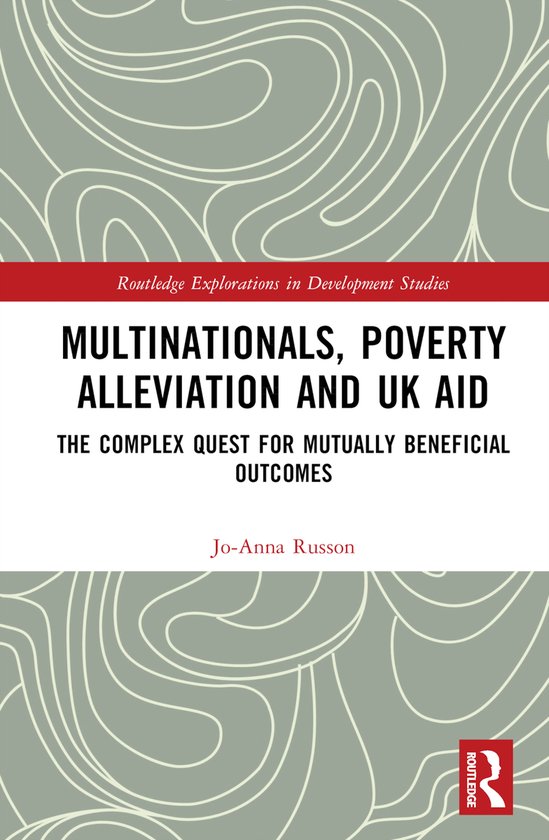Routledge explorations in development studies multinationals poverty alleviation and uk aid

2 - 3 weken
This book analyses the relationship between the private sector, UK official development aid (ODA) and poverty alleviation in Sub-Saharan Africa. The book will interest researchers from business management, development studies and political science, as well as to practitioners with an interest in the role of the private sector in ODA.
This book analyses the complex relationship between the private sector, UK official development assistance (ODA) and poverty alleviation in sub-Saharan Africa.
In recent years, the private sector has occupied an increasingly prominent position within UK ODA, bringing a range of opportunities and conflicting interests. This book first traces the trajectory of private sector engagement in ODA, before setting out the theoretical and analytical framework for analysing the mutual prosperity agenda in UK ODA – the notion that ODA can benefit both donor and beneficiary country interests. By extending corporate social responsibility theory (in the emerging field of business and development studies) to ODA, the book critiques the underlying assumptions contained within UK ODA-multinational corporation partnerships. With reference to three case studies GlaxoSmithKline plc., Barclays plc. and Anheuser-Busch InBev (formerly SABMiller), the book identifies where the activities of multinational corporations support and/or undermine ODA goals and the implications for the UK’s mutual prosperity agenda.
Overall, the book reflects a pragmatic approach to maximising the role of private sector actors in ODA, whilst also drawing attention to the opportunities and challenges in the mutual prosperity agenda. The book will be of interest to researchers from business management, development studies and political science, as well as to practitioners with an interest in the role of the private sector in ODA.
- 1 Bekijk alle specificaties
Taal: en
Bindwijze: Hardcover
Oorspronkelijke releasedatum: 12 oktober 2023
Aantal pagina's: 192
Hoofdauteur: Jo-Anna Russon
Hoofduitgeverij: Routledge
Product breedte: 156 mm
Product lengte: 234 mm
Verpakking breedte: 156 mm
Verpakking hoogte: 20 mm
Verpakking lengte: 234 mm
Verpakkingsgewicht: 453 g
EAN: 9781032170206